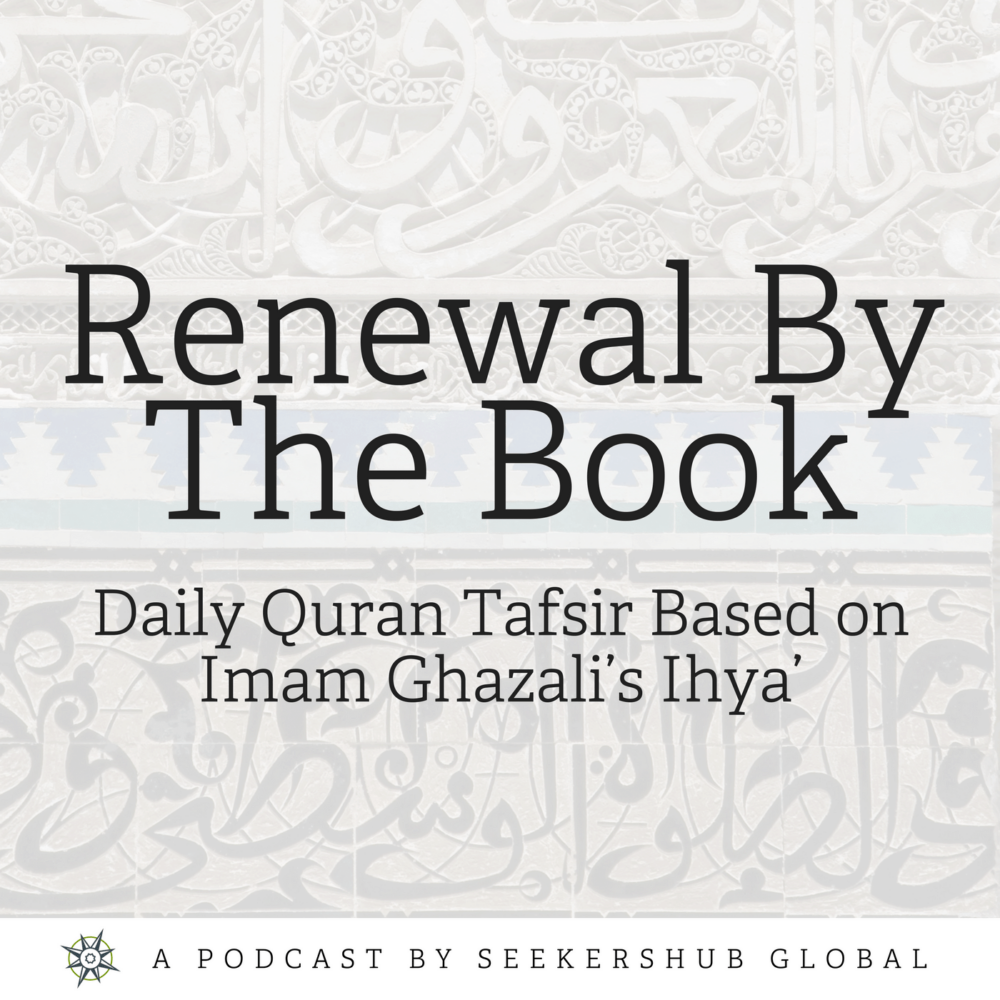04: Establishing Prayer – Renewal by the Book: Quran Tafsir Based on Imam Ghazali’s Ihya – Shaykh Faraz Rabbani
Podcast: Play in new window | Download (12.0MB)
In this episode, Shaykh Faraz highlights verse 14 of Surah Taha (Chapter 20), which is about establishing prayer out of remembrance: (إِنَّنِي أَنَا اللَّهُ لَا إِلَٰهَ إِلَّا أَنَا فَاعْبُدْنِي وَأَقِمِ الصَّلَاةَ لِذِكْرِي) “Truly, I am Allah. There is no god but me. So worship Me and establish prayer out of My remembrance.”
Shaykh Faraz goes on to explain that the reason for prayer is remembrance of Allah. Within that there are three levels of remembrance: [1] those who worship seeking to remember, [2] those who worship in remembrance, and [3] those who worship out of remembrance. All of these levels are implicit in this verse.
There are 4 considerations to why we worship:
[1] What is worship? – That which is expressed by the slave towards their master.
[2] Who is the One worshiped? – Allah Most High ; the act of worship is not about the act itself, the one praying but about the One being prayed to. Allah, the Creator and Sustainer of all things.
[3] Who is the worshiper? – Slave of Allah: in absolute existential neediness of Allah. Worship: expression of neediness — only means of fulfillment of inherent neediness.
[4] What is the act of worship? – Prayer expresses neediness in the most comprehensive of ways because it is both inward and outward engaging both heart and limbs. Prayer expresses need, turning and presence with the One you are praying to.
Lastly, Shaykh Faraz emphasizes that one must prayer in the same way that the Prophet Muhammad (peace and blessings be upon him) did. No one expressed neediness of Allah, turning towards HIm and presence with Allah like the Prophet (peace and blessings be upon him) did. We must, as believers, strive to uphold the outward manifestations of prayer because they are the containers of the meaning of presence, that is prayer.
In this series Shaykh Faraz will be looking at points of reflection from key verses in the Quran. The series will follow the thematic order of Imam Ghazali’s Ihya Uloom ud-Din (Renewing the Religious Knowledges). The aim is to connect the key verses of guidance from the Book of Allah with the blueprint of renewal, the Ihya, so that we experience a renewal by The Book.
Join our Ramadan 2017 program: #RamadanRenewal, in-person at SeekersGuidance Toronto or online through the SeekersGuidance Global platform. For more details, visit: https://seekers.flywheelstaging.com/ramadan.
Checkout all of the SeekersGuidance podcasts by visiting https://seekers.flywheelstaging.com/podcasts/
